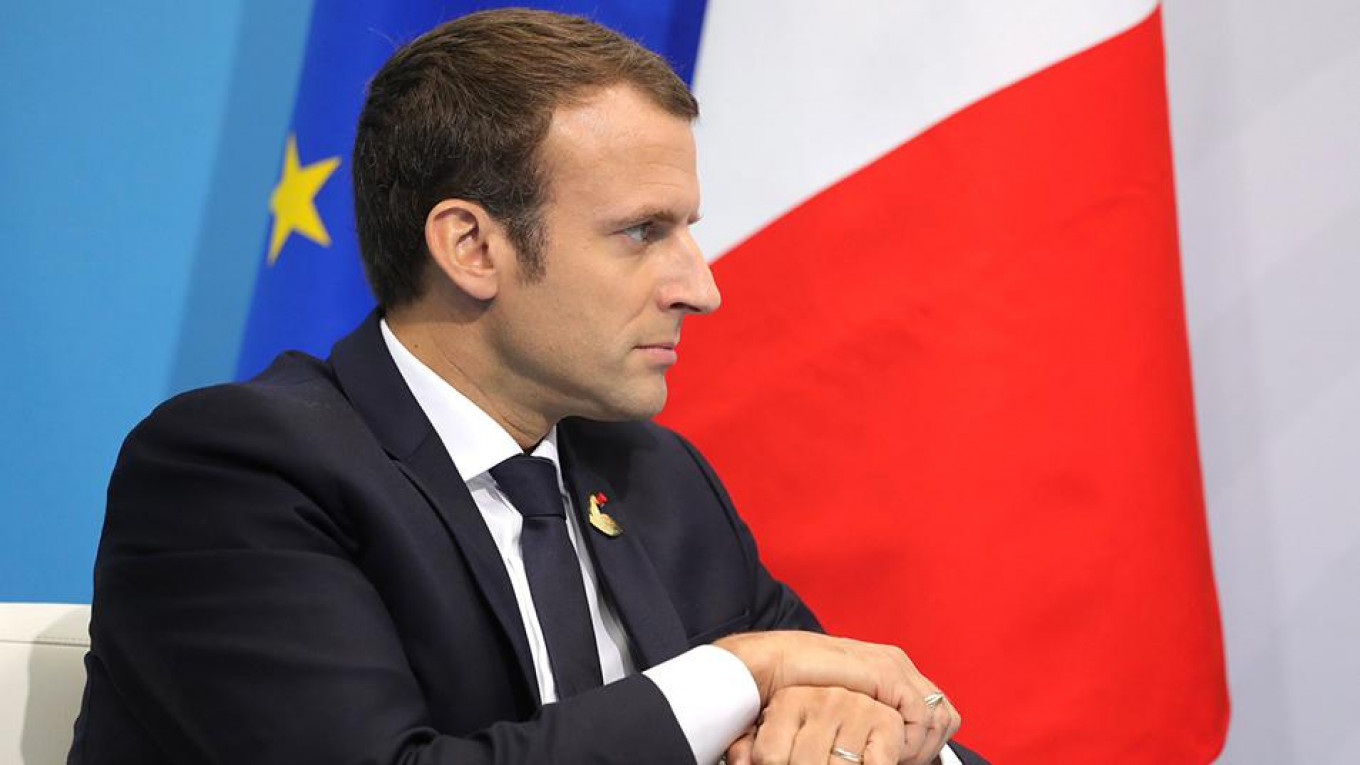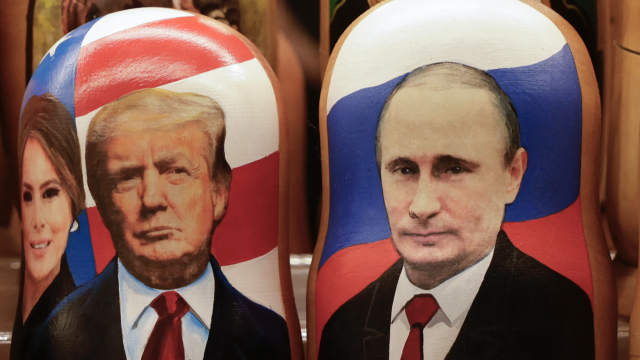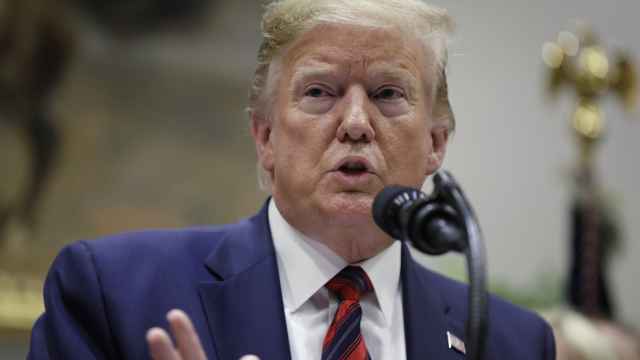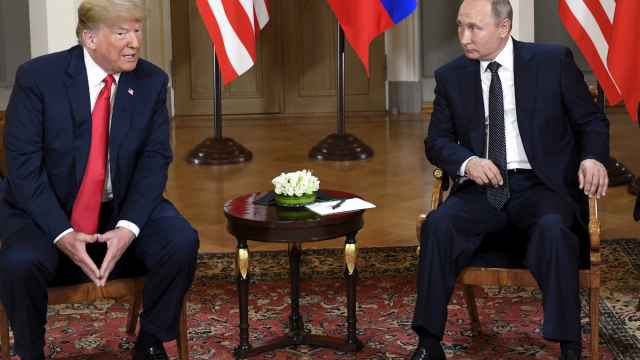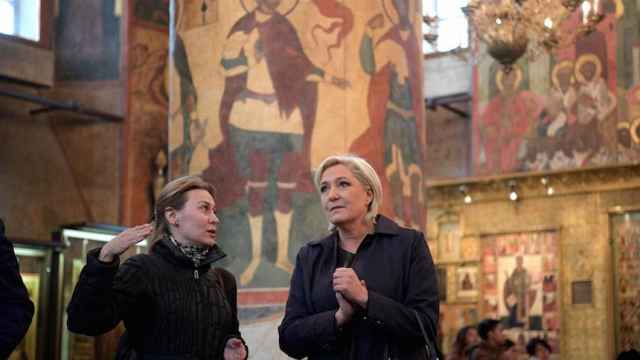Emmanuel Macron heads to St. Petersburg on Thursday seeking to win concessions from Vladimir Putin, but with Europe-U.S. ties strained over Iran, the Russian leader may have little incentive to offer the French president a diplomatic success.
A year after hosting Putin in the regal halls of the Chateau de Versailles, Macron wants to find common ground on Syria and Ukraine during his two-day visit, while opening a broader dialogue on Iran after President Donald Trump's withdrawal from the nuclear deal.
"The weakness of the transatlantic relationship does not give Macron sufficiently strong positions to counter Putin," said Tatiana Kastoueva-Jean, director of the Russia center at the Paris-based Institute for International Relations.
"Putin knows that there are differences in the Western camp and as soon as someone shows weakness he exploits it."
Macron has bet on nurturing relationships with leaders such as Putin to appear engaged but non-committal, trying to mediate among the sides without unsettling anyone.
That policy is now being tested after Trump shunned his closest allies and slapped on extraterritorial sanctions on Iran, having already pulled out of the global climate pact and threatened the EU with tariffs on metals.
The U.S. move has left Paris, London and Berlin scrambling to salvage the nuclear deal knowing full well that their interests are not necessarily aligned with the two remaining signatories — Russia and China.
Macron hopes to entice all sides into a grand bargain that would tackle Iran's nuclear program and also address fears over its ballistic missile activity and regional influence as a means to bringing the United States back into the fold.
"A lot needs to be done to convince the Russians because it has interests in the Middle East, especially Syria, and its stance towards the West is aggressive," said a senior French diplomat.
Rather than directly confronting Putin publicly, Macron has emphasized private dialogue, while pushing for a restoration of business and cultural ties despite existing European Union sanctions on Moscow.
Invited as guest of honor to an economic forum that will be attended by the likes of French oil major Total, Macron will on Friday at least trumpet improved trade ties that have seen French exports steadily recover after a drop in 2015.
But the strategy as a whole has shown its limits. Over the last year Moscow has not altered its positions in Syria, where it continues to back President Bashar al-Assad militarily, or in Ukraine, where just last week Putin again excluded ever restoring annexed Crimea.
Yet even after Britain accused Russia of orchestrating a nerve-gas attack on its soil — further souring EU-Russia ties — Macron has continued to stress that despite differences, ostracizing Moscow would not yield results.
"I felt the eagerness of this dynamic young and ambitious man to quickly find concrete solutions, but alas in life it is a little more complicated. The solution in Syria as in Ukraine depends not only on us or the French, but other actors," former Russian ambassador to France Alexander Orlov told Reuters.
"But nevertheless there is this positive approach on the part of President Macron ... and he is ready to cooperate with Russia to find solutions."
A Message from The Moscow Times:
Dear readers,
We are facing unprecedented challenges. Russia's Prosecutor General's Office has designated The Moscow Times as an "undesirable" organization, criminalizing our work and putting our staff at risk of prosecution. This follows our earlier unjust labeling as a "foreign agent."
These actions are direct attempts to silence independent journalism in Russia. The authorities claim our work "discredits the decisions of the Russian leadership." We see things differently: we strive to provide accurate, unbiased reporting on Russia.
We, the journalists of The Moscow Times, refuse to be silenced. But to continue our work, we need your help.
Your support, no matter how small, makes a world of difference. If you can, please support us monthly starting from just $2. It's quick to set up, and every contribution makes a significant impact.
By supporting The Moscow Times, you're defending open, independent journalism in the face of repression. Thank you for standing with us.
Remind me later.


